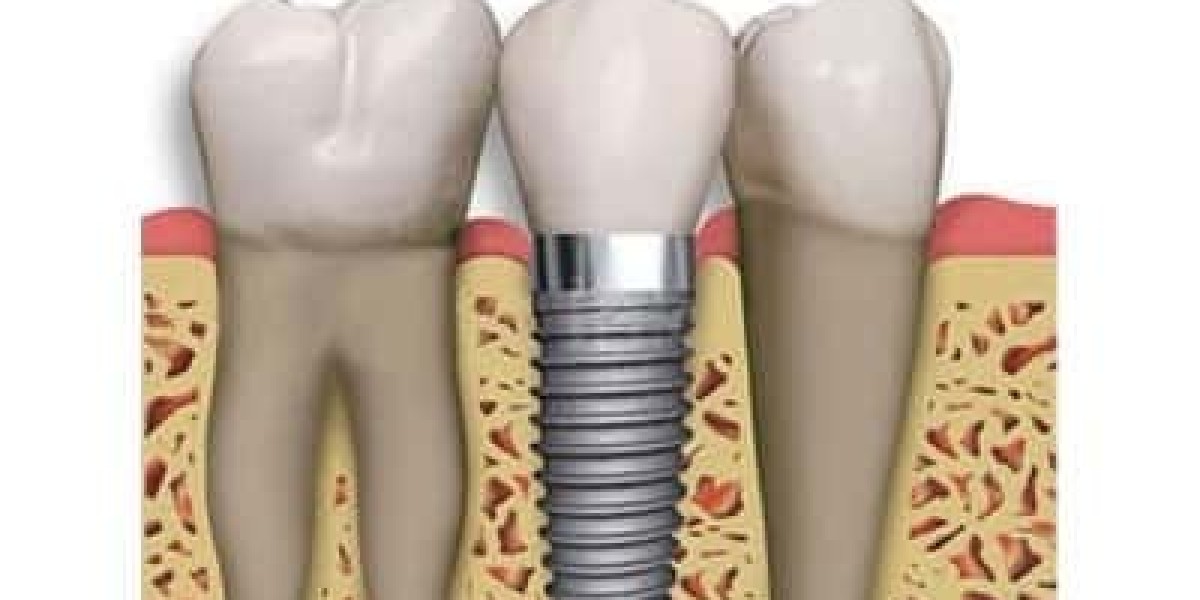Whether you’ve lost a tooth due to injury, decay, or disease, dental implants provide a reliable way to restore both function and appearance. This article explores everything you need to know about dental implants, including their benefits, procedure, maintenance, and suitability.
What Are Dental Implants?
Dental implants are artificial tooth roots made of biocompatible materials, such as titanium, that are surgically placed into the jawbone. They serve as a foundation for replacement teeth, including crowns, bridges, or dentures. Unlike traditional dentures or bridges, implants integrate with the bone, offering a permanent and stable solution.
Types of Dental Implants
There are several types of dental implants to suit different needs:
Endosteal Implants:
These are the most common type of implants, placed directly into the jawbone. They typically support crowns, bridges, or dentures.
Subperiosteal Implants:
These implants are placed under the gum but above the jawbone. They are used when the patient’s jawbone is insufficient for endosteal implants and bone grafting is not an option.
Zygomatic Implants:
These are longer implants anchored in the cheekbone (zygoma) rather than the jawbone. They are a solution for patients with severe bone loss in the upper jaw.
The Benefits of Dental Implants
Dental implants offer numerous advantages, making them a preferred choice for tooth replacement:
Natural Appearance:
Implants closely resemble natural teeth, providing a seamless and attractive smile.
Durability:
With proper care, dental implants can last a lifetime, making them a cost-effective solution in the long term.
Improved Functionality:
Implants restore full chewing and speaking abilities, unlike traditional dentures, which may slip or cause discomfort.
Bone Preservation:
By stimulating the jawbone, implants prevent bone loss and maintain facial structure.
Comfort:
Since implants become part of your jawbone, they feel more natural and comfortable compared to removable dentures.
Oral Health:
Implants do not require the alteration of adjacent teeth, as is often necessary with traditional bridges.
The Dental Implant Procedure
The process of getting dental implants involves several steps, typically completed over a few months:
Initial Consultation:
Your dentist will assess your oral health, take X-rays, and create a treatment plan tailored to your needs. This step determines whether you have sufficient bone density for implants or require preparatory procedures like bone grafting.
Preparation:
If needed, bone grafting or sinus lift procedures are performed to enhance the jawbone’s structure and ensure a stable foundation for the implant.
Implant Placement:
During a surgical procedure, the implant is inserted into the jawbone. This is typically done under local anaesthesia or sedation.
Osseointegration:
Over the next 3-6 months, the implant fuses with the jawbone in a process called osseointegration. This creates a strong and stable base for the replacement tooth.
Abutment Placement:
Once the implant has integrated with the bone, an abutment (a connector piece) is attached to the implant. This will hold the replacement tooth or crown in place.
Crown Placement:
A custom-made crown is secured to the abutment, completing the restoration. The crown is designed to match the colour, shape, and size of your natural teeth.
Who is a Candidate for Dental Implants?
While dental implants are suitable for many individuals, certain factors determine eligibility:
Good Oral Health:
Healthy gums and a sufficient amount of jawbone are essential for successful implantation.
Non-Smokers:
Smoking can interfere with the healing process and increase the risk of implant failure.
Overall Health:
Conditions such as uncontrolled diabetes or immune disorders may affect the body’s ability to heal and integrate the implant.
Commitment to Oral Hygiene:
Maintaining excellent oral hygiene is crucial for the long-term success of dental implants.
Age Considerations:
Dental implants are typically not recommended for children or adolescents whose jawbones are still developing.
Potential Risks and Complications
While dental implants have a high success rate (95-98%), there are potential risks and complications to consider:
Infection:
Poor oral hygiene or improper aftercare can lead to infections around the implant site.
Implant Failure:
In rare cases, the implant may not fuse with the bone, necessitating removal and replacement.
Nerve Damage:
Improper placement can cause nerve injury, leading to numbness or tingling in the lips, tongue, or chin.
Sinus Issues:
Implants in the upper jaw may protrude into the sinus cavity if not correctly positioned.
Cost of Dental Implants
The cost of dental implants varies depending on factors such as the number of implants, the need for additional procedures, and the type of restoration. In the UK, a single dental implant typically costs between £2,000 and £2,500. While the initial cost may seem high, the durability and benefits of implants often make them a worthwhile investment.
Caring for Dental Implants
Proper care and maintenance are essential for the longevity of dental implants:
Oral Hygiene:
Brush and floss daily to prevent plaque buildup and gum disease.
Regular Dental Check-Ups:
Visit your dentist regularly for professional cleanings and to monitor the health of your implants.
Avoid Hard Foods:
Refrain from chewing hard objects like ice or hard sweets, which can damage the crown.
Quit Smoking:
Smoking can compromise healing and increase the risk of implant failure.
Use a Mouthguard:
If you grind your teeth at night, a custom mouthguard can protect your implants and natural teeth.
Alternatives to Dental Implants
If dental implants are not suitable for you, other tooth replacement options include:
Dental Bridges:
A bridge replaces one or more missing teeth by anchoring to adjacent natural teeth.
Dentures:
Full or partial dentures are removable prosthetics that replace missing teeth and surrounding tissues.
Resin-Bonded Bridges:
Also known as Maryland bridges, these are less invasive and bonded to the back of adjacent teeth.
Success Stories and Testimonials
Many patients who have opted for dental implants report life-changing results, including improved confidence, better oral function, and a natural-looking smile. Testimonials often highlight the comfort and stability of implants compared to traditional dentures or bridges.
Conclusion
Dental implants are a groundbreaking solution for replacing missing teeth, offering unmatched durability, functionality, and aesthetics. While the procedure involves an investment of time and money, the long-term benefits make it an excellent choice for many individuals. By understanding the process, benefits, and care requirements, you can make an informed decision and take the first step towards restoring your smile.



